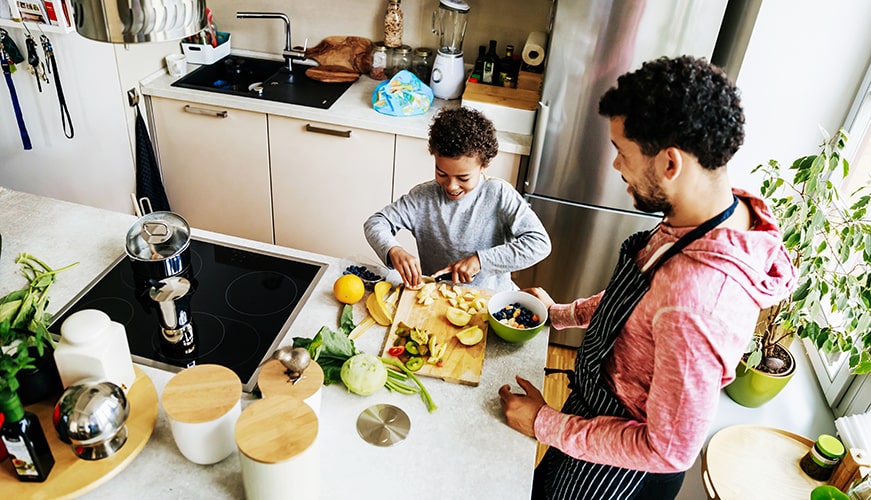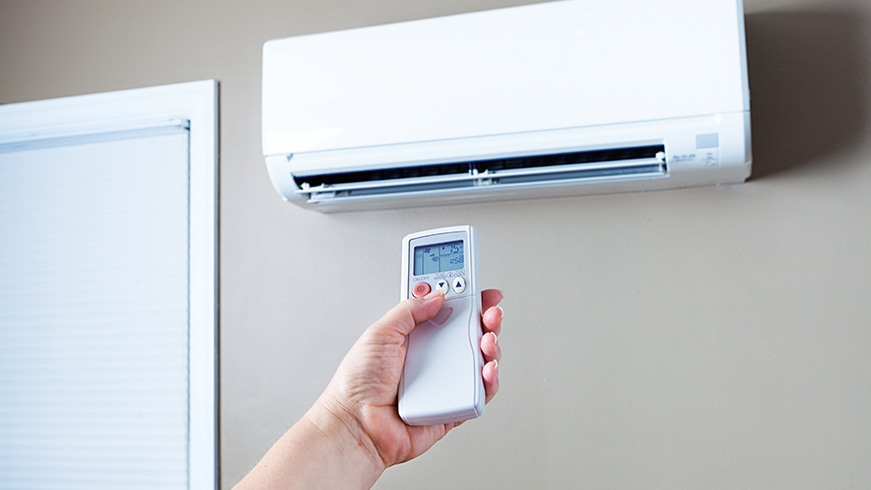Whether you’re feeding a family or just one, the kitchen is often the beating heart of your home. But spending time in the kitchen often involves using energy. If you’re looking to save energy while you cook, follow these tips for a lower utility bill and a healthier planet.
1. While using your stovetop, try to keep lids on your pots whenever possible. This will trap heat rather than letting it escape, helping your food cook faster.
2. If you’ve got more than one dish to make, you can put multiple dishes in the oven at the same time. Your oven will use the same amount of electricity to heat up one dish as opposed to a full rack
3. Resist the urge to peek in the oven. The temperature of your oven can drop up to 25° each time you open the door. Your oven will then have to spend extra warming back up. You can conserve energy by reducing the number of times you open your oven while baking.
4. You don’t actually need to preheat your oven if the recipe calls for a baking time longer than one hour. You may need to tack an extra minute or two on at the end, but for most recipes this will hardly make a difference. When you put your dish in the oven right away, all the energy spent getting it to its optimal temperature won’t be put to waste.
5. If you have an electric stove and oven, you can turn off the heat 5–10 minutes before the food is done. The residual heat will continue to cook your meal without using any energy.
6. Substitute your metal pans for ceramic or glass, especially when you’re baking. These materials retain heat better, and you can actually turn down your oven 25° for the same results.
7. Use smaller appliances more often. Your crockpot, microwave, toaster oven, and rice cooker use much less energy than your stovetop. If you can get the job done with a smaller appliance—or even just simple tasks like melting butter—go ahead and give your oven and range a break.
8. If you have an electric stove, make sure your pots and pans are in good condition. Your burners can only transmit heat when making direct contact with your pan. This means that if the bottom of your pans are bent or warped, they’ll cook your food less efficiently.
9. Match the size of your burners to the size of your pots and pans. A small pot on a big burner will send all that extra heat directly into the air. Putting a large pot on a small burner also wastes energy, as it will take much longer to heat up than it would on a larger burner.
10. Keep your burners clean. All the extra gunk on your stovetop will divert heat and make your cooking less efficient. This principle applies to your oven, too.
11. Don’t put hot food directly into the refrigerator. Your fridge will use extra energy trying to balance out its internal temperature. Instead, let your food cool down to room temperature beforehand.
12. When the cooking is done and it’s time to clean your dishes, opt for the dishwasher rather than washing them by hand. You’ll actually use three times more water hand-washing your dishes than if you let the machine do it. If you don’t have a dishwasher, the best way to hand-wash dishes is to fill up one tub with soapy water and another with fresh water. This will cut down on water waste from a constantly running faucet.
These tips will not only help you lower your electricity bill, they’ll also help you cook faster and more efficiently. Because cooking is such an energy-intensive activity, making small changes to your kitchen practices can have a significant impact on your overall energy usage. Happy cooking!



